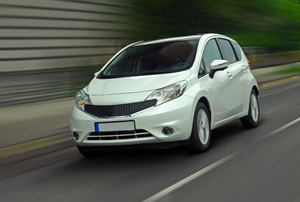- Transportation Efficiencies
- EV Charging
- EV Charging
- Conferences Events
- PEVs
Cities Taking Steps to Charge Up EV Sales

Urban areas with air quality concerns are promoting the use of plug-in EVs (PEVs) as a way to reduce greenhouse gas emissions. By investing in EV charging infrastructure, cities such as New York City, Seattle, and Boulder are hoping to allay residents’ fears of not having a place to recharge their vehicles.
New York City is emphasizing fully emissions-free driving by installing charging stations that get their energy from the sun. The city recently ordered more than 30 solar-powered charging stations from Envision Solar, the manufacturer of EV ARC units that fit within the footprint of a typical parking spot. The parking-constrained city is ordering the charging stations to provide power to New York City's fleet of PEVs, which will likely grow by 1,000 vehicles in 2017.
Seattle to Add Light and Charge
The city of Seattle is leveraging its street light infrastructure for expanding EV charging. The city will install 100 of BMW’s innovative Light and Charge systems, which tap into the power of street lights. The Light and Charge system is part of BMW’s ReachNow mobility service that was initially piloted in Munich and is being brought to the United States for the first time.
The system will include both direct current (DC) fast chargers and Level 2 charging and will be placed at up to 20 locations, including the Woodland Park Zoo, where the first Light and Charge systems are now up and running. The smart street lighting Light and Charge technology also includes upgrades to more energy efficient LED lights, as well as sensors for monitoring the environment and a connection to the cloud for sharing data.
Big Charge in a Little City
The much smaller city of Boulder, Colorado is more than doubling its EV charging station capacity to 46 units in 2017. The city is using a $100,000 grant from the Regional Air Quality Council to upgrade its existing charging stations at recreational centers and other locations, as well as to add new stations.
Boulder is awash in Nissan LEAFs thanks to the progressive actions at the Boulder Nissan dealership, which is one of Nissan’s largest sellers of PEVs despite the city’s smaller population (about 100,000). The city is helping to educate residents about the economics and operational benefits of owning a PEV through the EnergySmart program. The unique EV advising service provides an advisor to talk residents through understanding the ins and outs of tax rebates, accessing charging infrastructure, and integrating EVs with home solar charging.
PEVs Charging Ahead
As seen in the chart generated by Guidehouse Insights’ new Electric Vehicle Forecasts data service, the efforts that these cities are taking today will pay off in coming years and contribute to greater sales of PEVs. Annual sales of PEVs in Boulder, New York City, and Seattle are expected to grow by more than 800% to nearly 148,000 units between 2016 and 2025, according to Guidehouse Insights.
Total Sales by Powertrain, Scenario, and Year: 2016-2025

(Source: Guidehouse Insights)
Speakers from all three of these cities (myself included) will be discussing EVs and urban mobility solutions at the upcoming EVRoadmap Conference in Portland, Oregon. The annual event, which will be held June 19-21, has become the most important EV conference in the United States. EVRoadmap will feature speakers from across the globe and program tracks on cars, charging, and community.